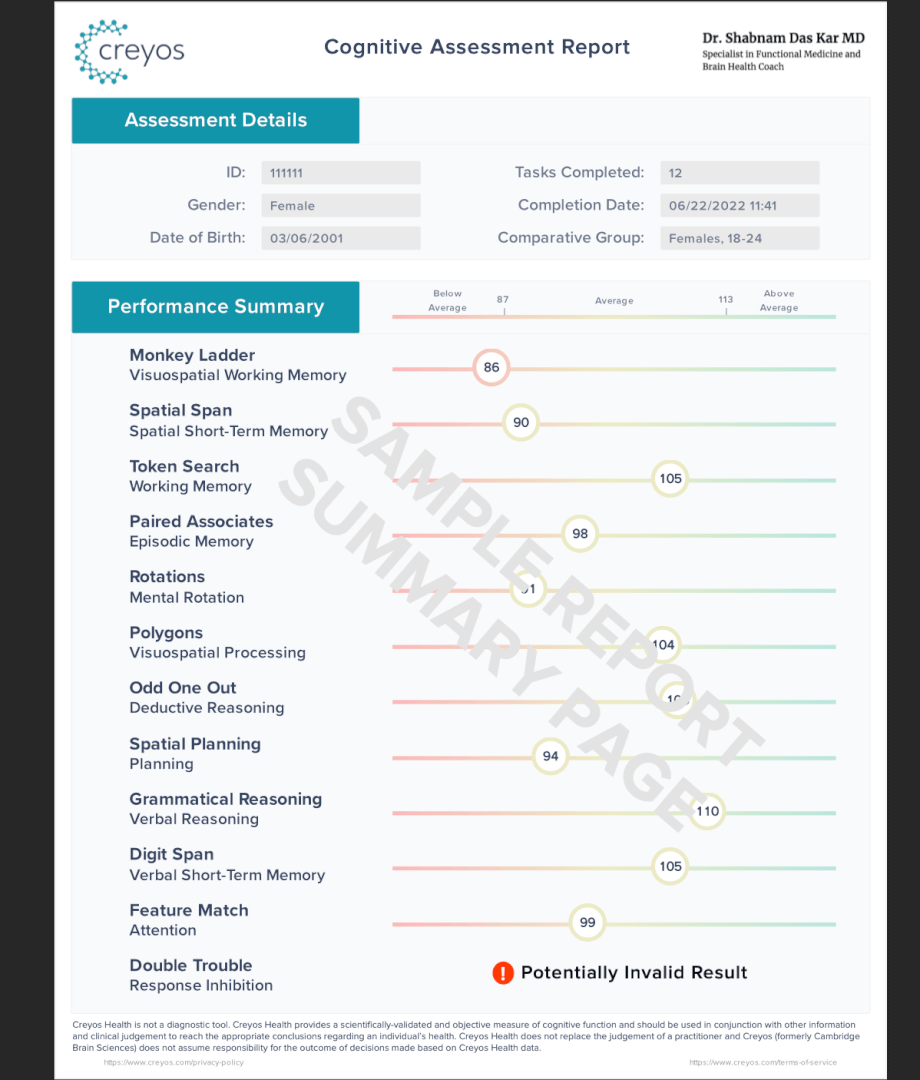COGNITIVE ASSESSMENT
Who Should Get A Cognitive Assessment Done?
Everyone!
Cognitive assessments are for everyone—whether you’re recovering from a brain injury, you feel your brain is not as rapid-fire as it was before or have been diagnosed with a mental health condition, or are simply seeking ways to maintain or optimize your brain’s performance, measuring your brain health will give you insights that enable you to take the steps you need to improve your quality of life.
You are at high risk of cognitive decline if you have the following conditions:
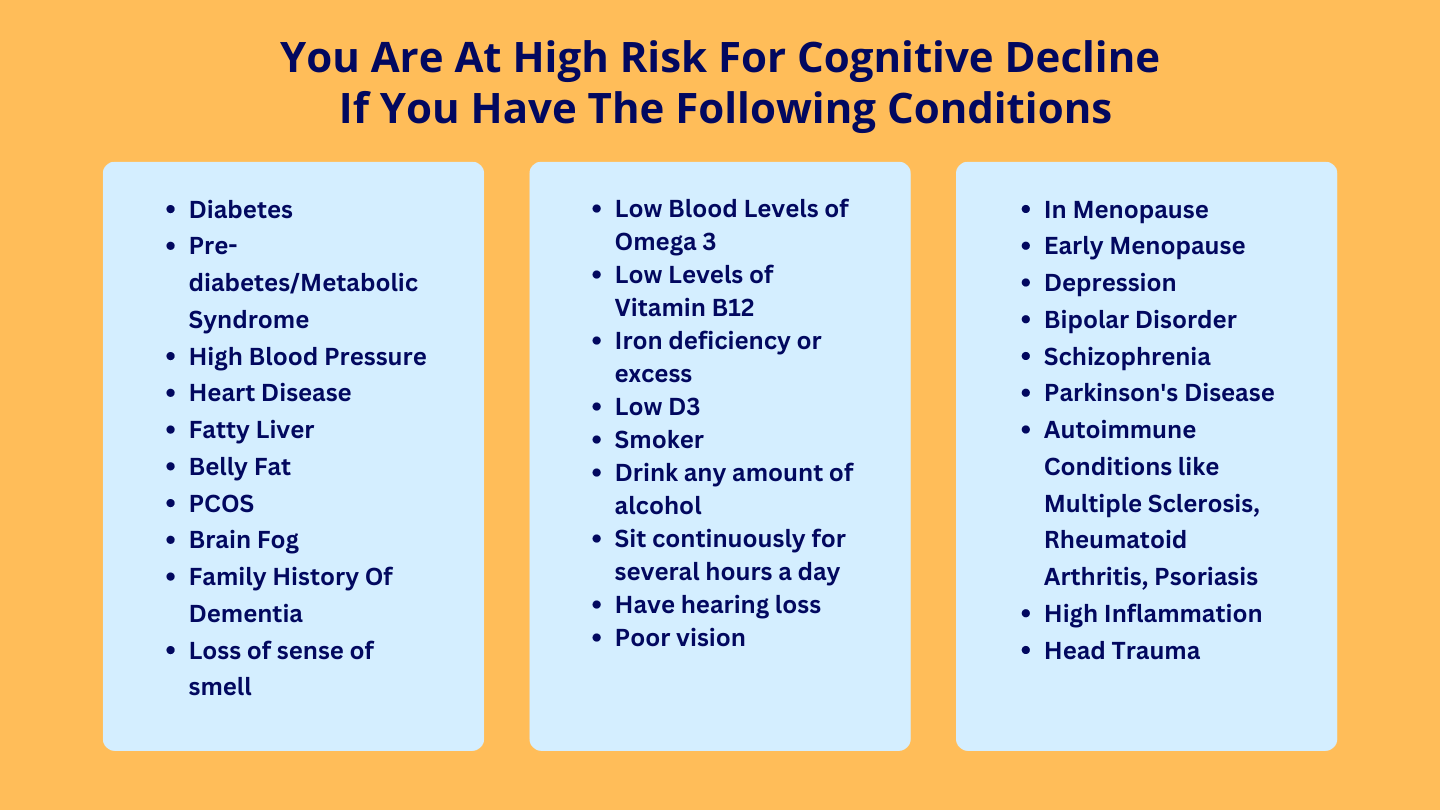
Why guess when you can test?
The first step to managing your brain health is to measure it. Your brain decides everything you do. That is why it is hard to be objective about how well your brain is working. You don't know what you don't measure.
By putting a number to your estimate of how your brain is functioning, we can discover what is causing the good days in order to have more of them. Every activity in your daily life will be easier when your brain performs, from remembering where you parked your car to doing your taxes to achieving career success and having better relationships.
What Does The Cognitive Assessment Include?
- Two online tests and two reviews of reports on Zoom
- Baseline Assessment: Online panel of tests to assess your planning, reasoning, short-term memory, attention, verbal memory and several other areas listed below.
- A Zoom call with Dr. Kar to discuss your baseline brain assessment report.
- A follow-up brain assessment after 8 weeks to determine your brain health trends.
- A Zoom call with Dr. Kar to discuss your follow-up report and decide on the next steps.
Why Measuring Brain Health Matters
You have an idea of how your brain is doing—some days, you feel “off” or have “brain fog,” while other days, you feel like you can take on the world. But how much better are you on your good days? Are lifestyle or health changes making a difference? That’s where a cognitive assessment comes in.
When was the last time you had a cognitive assessment?
Likely never! Unless you have memory issues or dementia.
People fear dementia more than cancer or heart disease. Dementias like Alzheimer's are on the rise worldwide, especially in low and medium-income countries, where healthcare systems are least prepared to deal with this dramatic rise. People live longer, but brain health is often ignored in a discussion on physical health unless you have symptoms of memory loss.
You have an annual health check-up to test your blood glucose, inflammation, lipids, thyroid function etc. but have you ever had a cognitive assessment before (unless you had memory symptoms)?
Surprisingly, until now, there has not been a standardized method for measuring core brain functions, such as
- memory
- reasoning
- verbal ability and
- concentration
The Cognitive Assessment helps solve this problem by providing a simple and scientifically validated test to measure and monitor your brain health.
The first step to managing your brain health is to measure it. Your brain decides everything you do. That is why it is hard to be objective about how well your brain is working. You don't know what you don't measure.
By putting a number to your estimate of how your brain is functioning, we can discover what is causing the good days in order to have more of them. Every activity in your daily life will be easier when your brain performs, from remembering where you parked your car to doing your taxes to achieving career success and having better relationships.
What does the test measure?
Below Is A Sample Report
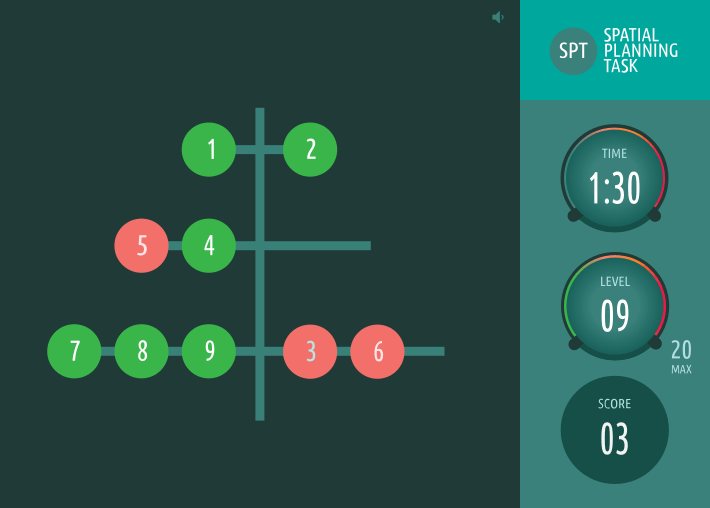
PLANNING
Planning is the ability to sequence behaviour in an orderly fashion to reach specific goals.
This ability is often used in scenarios such as deciding the order of items to pack in the trunk of a car or organizing your schedule to effectively balance work, chores, and social life.
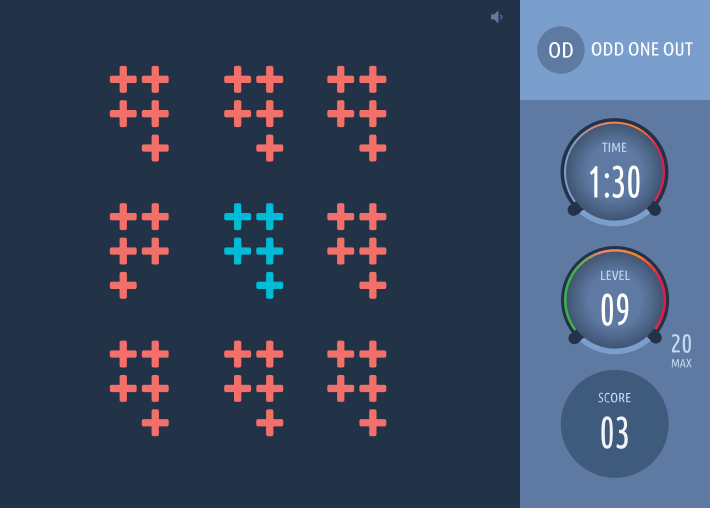
DEDUCTIVE REASONING
Deductive reasoning is the ability to apply rules to information in order to arrive at a logical conclusion.
This ability is often used in scenarios such as evaluating a complex argument and deciding if you agree or solving everyday math problems, such as splitting the bill at a restaurant.
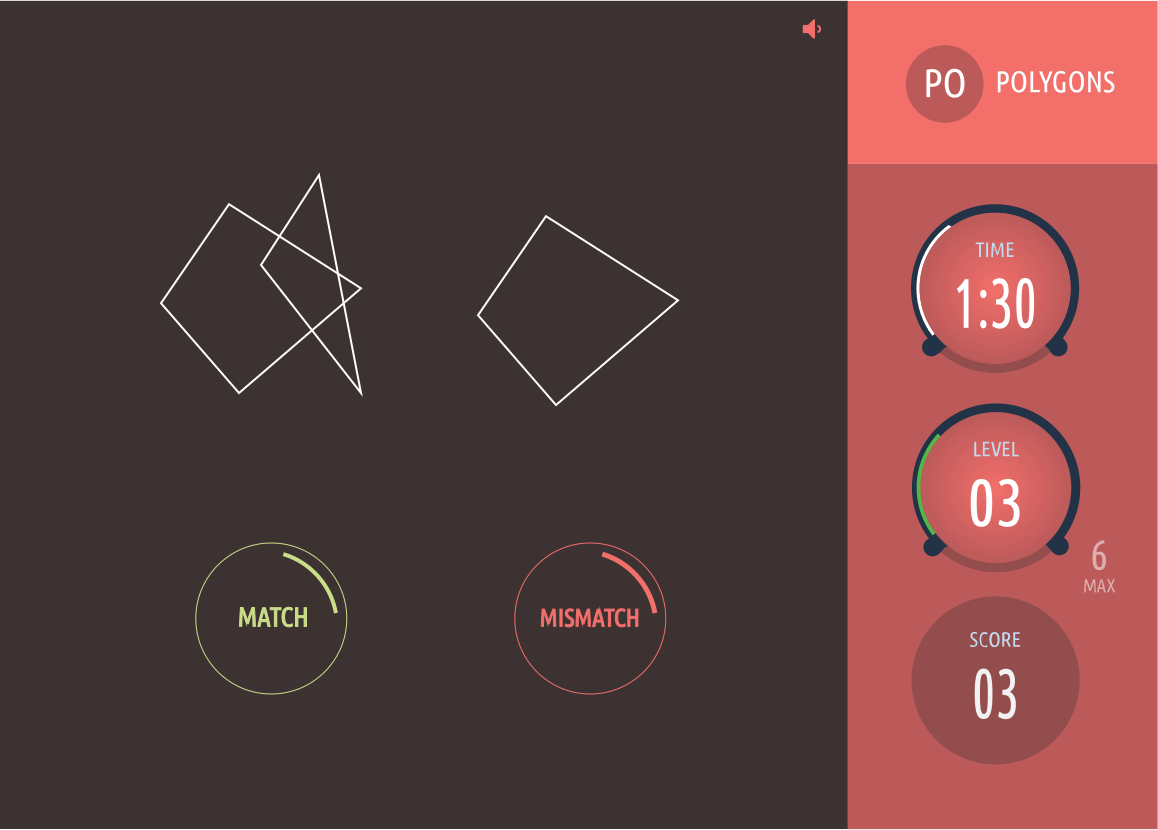
VISUOSPATIAL PROCESSING
Visuospatial processing is the ability to effectively process and interpret visual information.
This ability is often used in scenarios such as creating art, drawing diagrams or interpreting subtle facial expressions to know how someone is reacting to what you are saying.
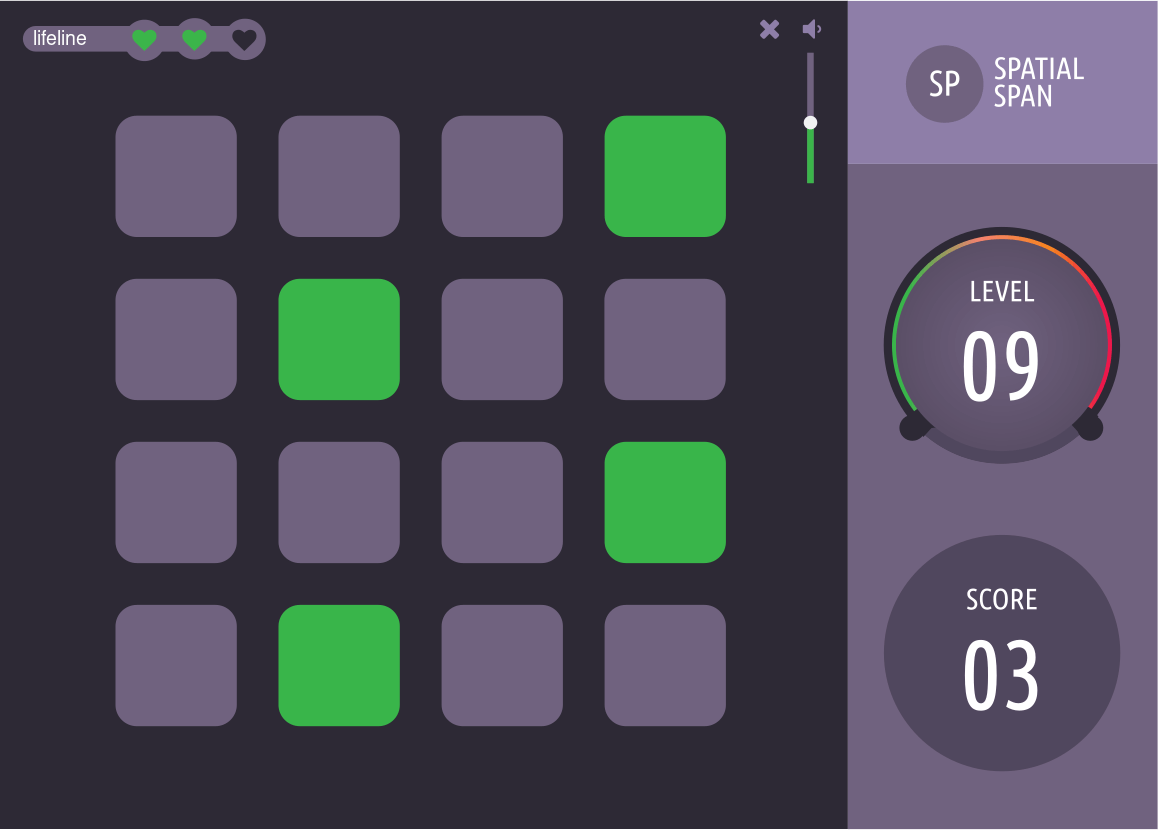
SPATIAL SHORT-TERM MEMORY
Spatial short-term memory is the ability to temporarily store spatial information in memory.
This ability is often used in scenarios such as navigating after getting directions from somebody, pointing on a map or drawing or building something you saw being created, like when following a YouTube tutorial.
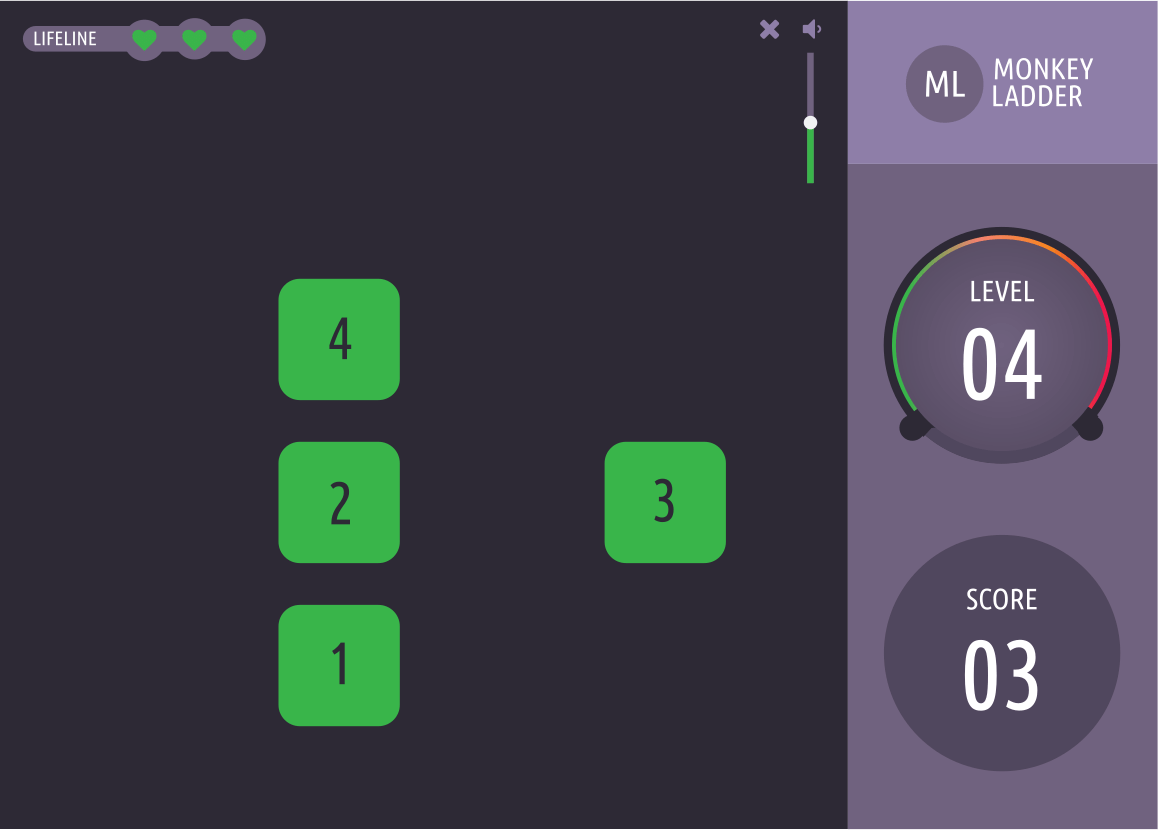
VISUOSPATIAL SHORT-TERM MEMORY
Visuospatial short-term memory is the ability to temporarily hold spatial information in memory and manipulate or update it based on changing circumstances or demands,
This ability is often used in scenarios such as viewing a route on a map, following the route from memory, understanding positioning in sports and carrying out pre-planned plays.
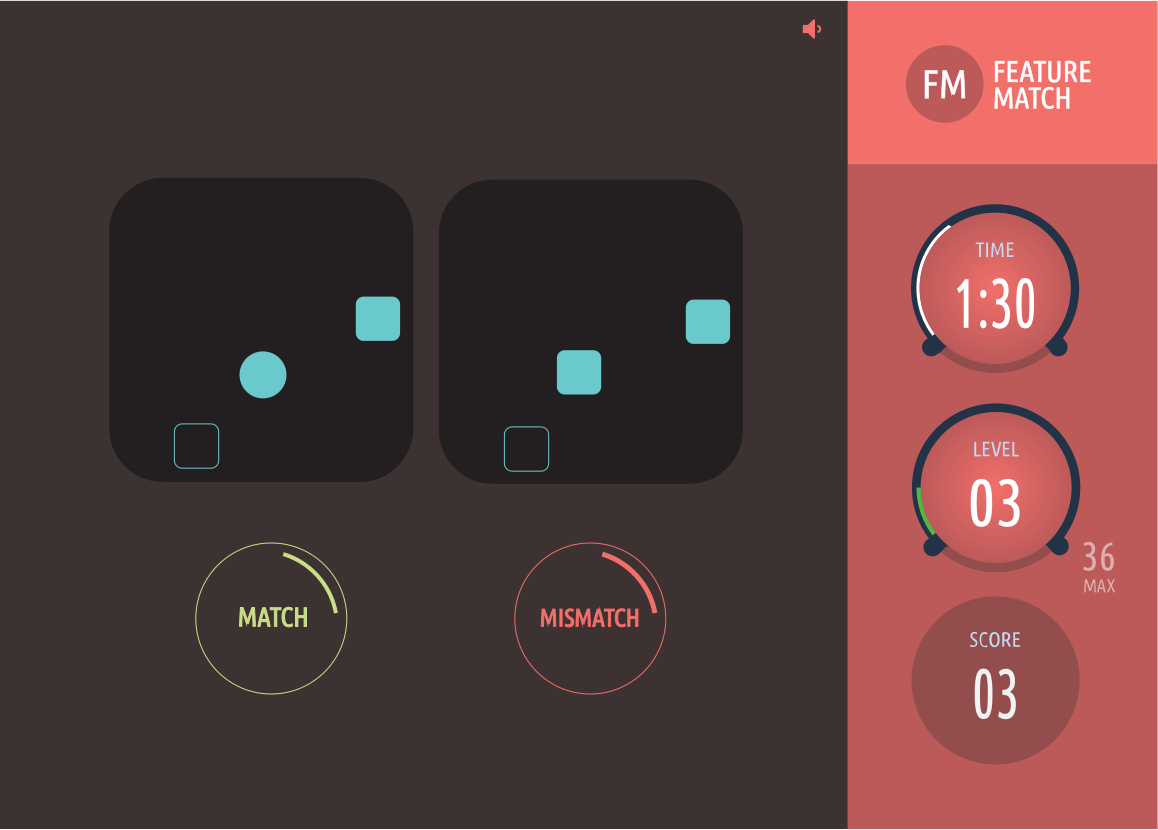
ATTENTION
Attention is the ability to focus on relevant details or differences.
This ability is often used in scenarios such as staying focused on a task when it counts (like driving), identifying similarities and differences when comparing two things, or noticing small interpersonal details, like a partner’s haircut.
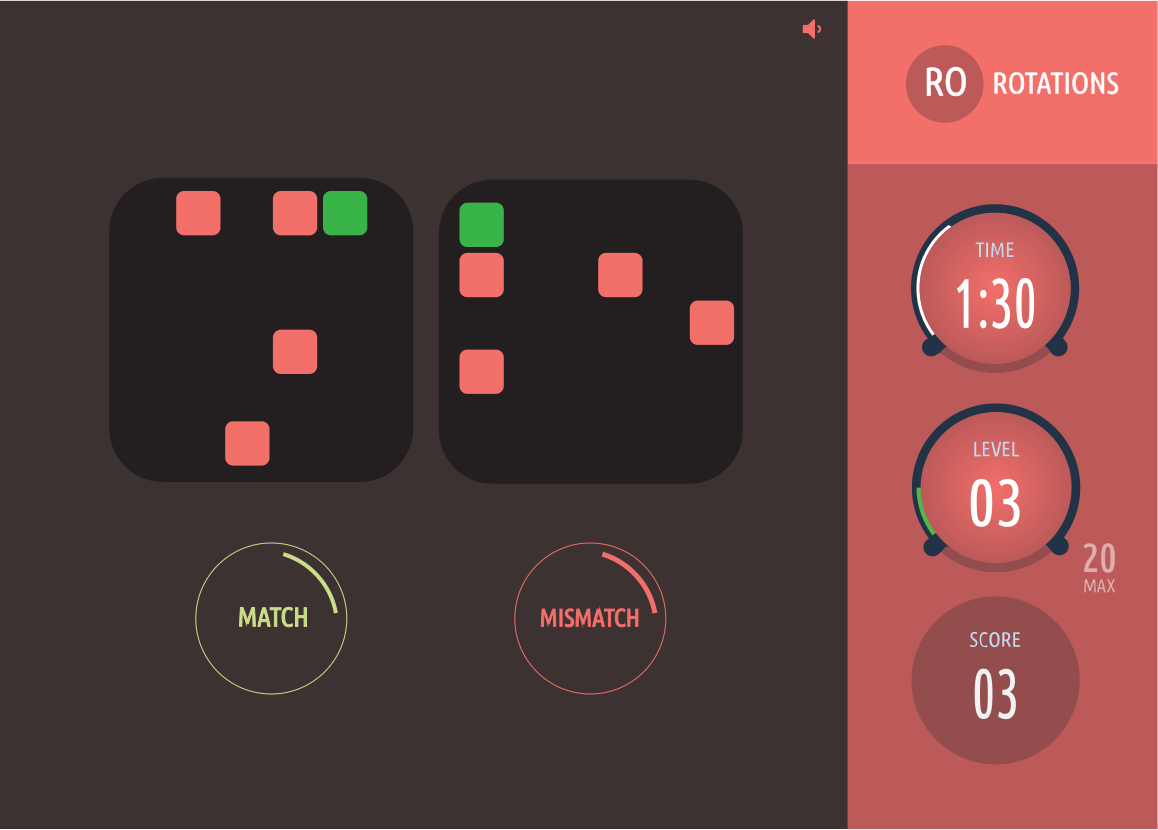
MENTAL ROTATION
Mental rotation is the ability to manipulate mental representations of objects in order to make valid conclusions about what objects are and where they belong.
This ability is often used in scenarios involving assembly (i.e. building a deck or putting together furniture) or planning a new layout for a room.
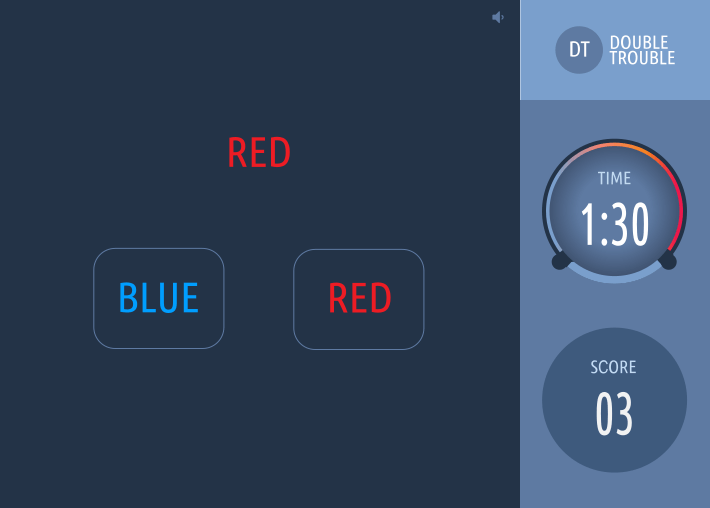
RESPONSE INHIBITION
Response inhibition is the ability to concentrate on relevant information in order to make a correct response despite interference.
This ability is often used in scenarios such as keeping your eyes on the road when driving, despite passing distracting signs or people or inhibiting your emotional gut reaction to a social media post to formulate a more rational response.
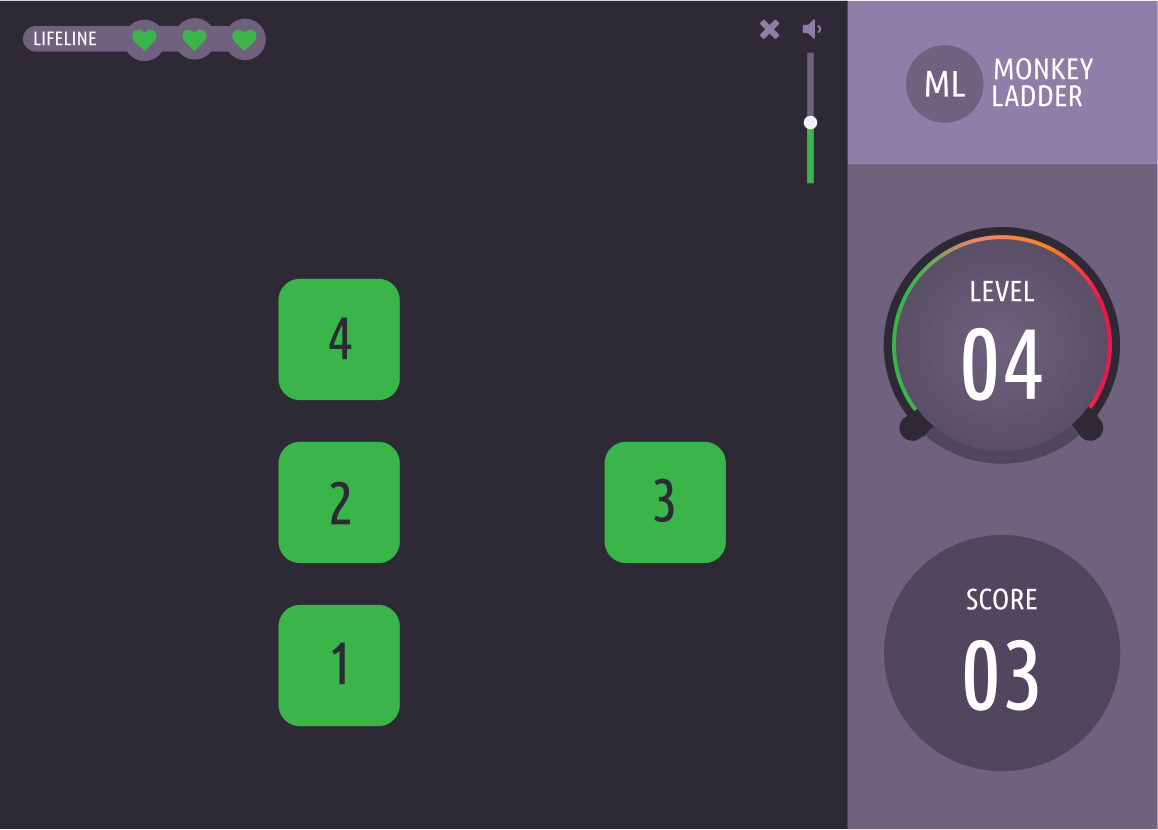
WORKING MEMORY
Working memory is the ability to temporarily hold information in memory and manipulate or update it based on changing circumstances or demands.
This ability is often used in scenarios such as systematically searching for a lost item in your home and remembering where you’ve already searched so that you do not search in that spot again.
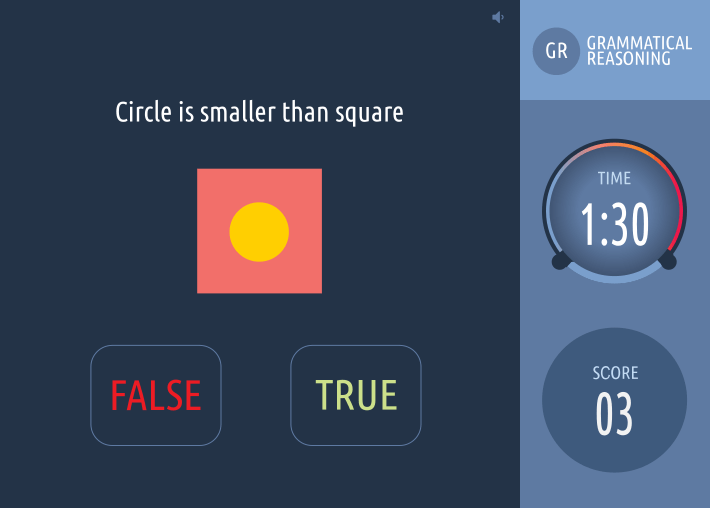
VERBAL SHORT-TERM MEMORY
Verbal short-term memory is the ability to hold information in mind and verbally rehearse it for as long as necessary.
This ability is often used in scenarios such as understanding long sentences by remembering the beginning of the sentence by the time you get to the end, writing down a phone number or entering in credit card information from memory.
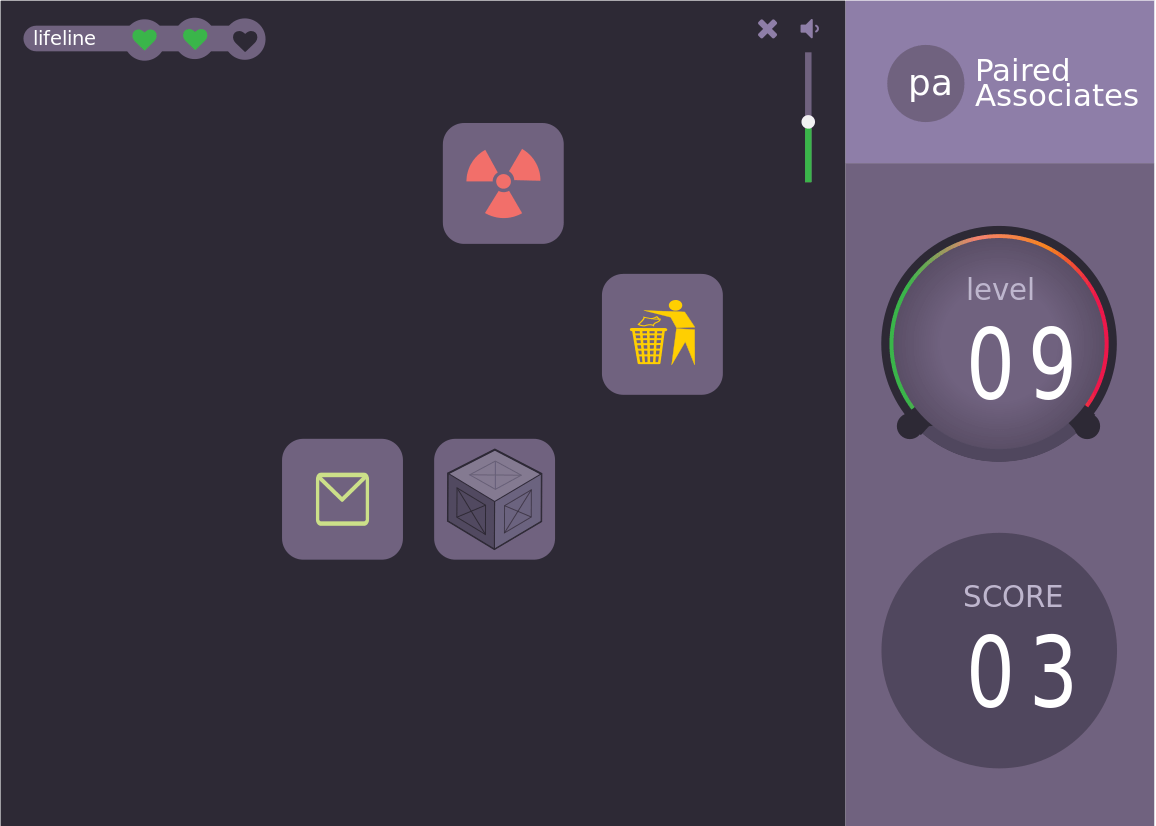
EPISODIC MEMORY
Episodic memory is the ability to remember and recall specific events, paired with the context in which they occurred.
This ability is often used in scenarios such as remembering which cupboard you put your groceries in, learning what each button does in a new app or device, or remembering who you talked to yesterday and at what time.
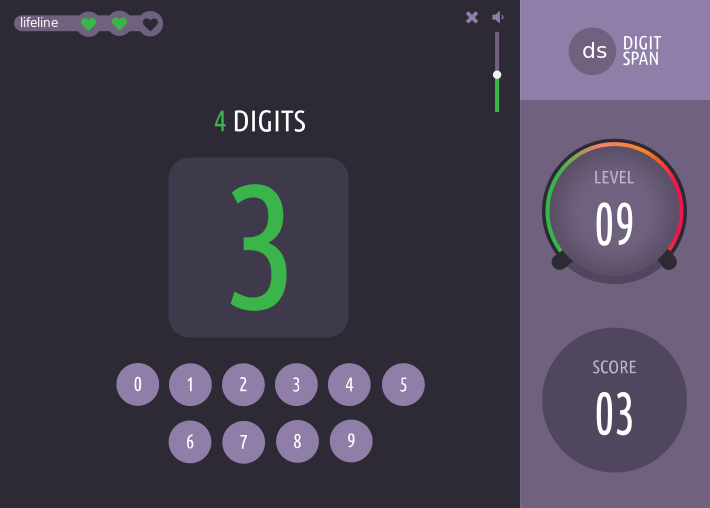
VERBAL REASONING
Verbal reasoning is the ability to quickly understand and make valid conclusions about concepts expressed in words.
This ability is often used in scenarios such as understanding complex everyday speech—e.g., “I didn’t know that he wasn’t going to show up.” or giving clear verbal or written instructions to people who report to you at work.
What Does The Cognitive Assessment Include?
- Two online tests and two reviews of reports on Zoom
- Baseline Assessment: Online panel of tests to assess your planning, reasoning, short-term memory, attention, verbal memory and several other areas listed below.
- A Zoom call with Dr. Kar to discuss your baseline brain assessment report.
- A follow-up brain assessment after 8 weeks to determine your brain health trends.
- A Zoom call with Dr. Kar to discuss your follow-up report and decide on the next steps.
Frequently Asked Questions (FAQs)
- Can this test diagnose dementias like Alzheimer's Disease? No. This is not a diagnostic or confirmatory test for dementia. Your physician diagnoses dementia after carefully evaluating your medical history, symptoms, lab reports and brain imaging when necessary. However, the cognitive assessment test can be used as a screening test if you have memory symptoms.
- Does this test my IQ? No. The cognitive assessment is not a test of your IQ.
- Are the tests included in the cognitive assessment scientifically validated? Yes! The tests are based on the work of renowned neuroscientist Dr. Adrian Owen. Check here to learn more about the company Creyos and the science behind the cognitive assessment tests.
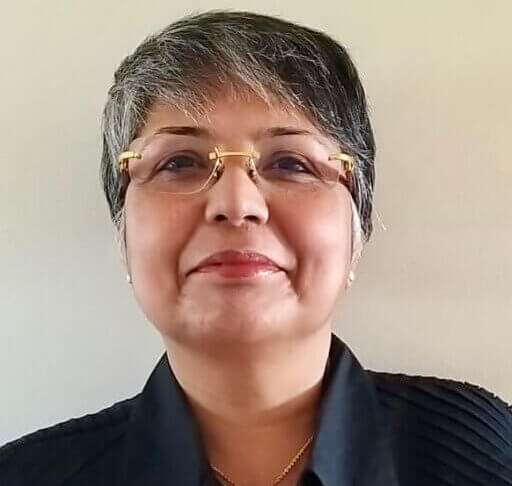
ABOUT DR.KAR
Dr. Kar is a Functional Medicine doctor and an international speaker. She is a fellow of the American Academy of Anti-Aging Medicine (A4M) and has completed the Clinician's Training on the Clinical Practice of Alzheimer's Prevention from Alzheimer's Universe. Brain Health Professional Certification from the Amen Clinics. She is a Tiny Habits Certified Coach. Dr. Kar lives in Alberta, Canada.
Dr.Kar is the Director of Medical Education at Better Medical Centre, Calgary, Canada.
